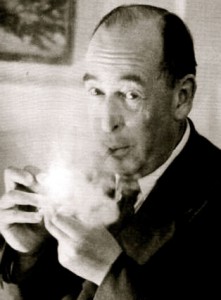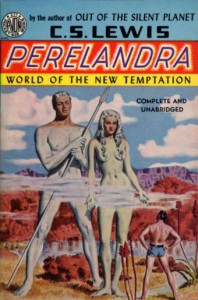 A few noteworthy articles concerning C.S. Lewis have been buzzing about the web recently:
A few noteworthy articles concerning C.S. Lewis have been buzzing about the web recently:
New Transcription of C.S. Lewis Manuscript?
Most notably, Andrew Lazo–longtime friend of the C.S. Lewis Foundation–has recently posted an article on his blog about his transcription of an early manuscript that formed the basis for Surprised by Joy.
Interestingly, this manuscript includes information concerning Lewis’s conversion to theism, detailing the works he read and the questions he considered while navigating his way back to God. As Mr. Lazo writes, “Names such as Berkeley, Bradley, Hume, Kant, and Plato, alongside Lewis’s grapplings with Consciousness, the Self, Idealism, Realism, Solipsism, and the Absolute inhabit the pages, and they do so in a stately and deliberate order.” Of further interest is the identification of the real year of Lewis’s “conversion” to theism. Instead of 1929, as he wrote in Surprised by Joy, the manuscript reveals that he actually came to this conclusion in 1930. This is probably not too surprising for anyone who understands Lewis’s rather unfortunate relationship with math, but it is certainly interesting in terms of correcting the narrative!
C.S. Lewis Scholar on the Move
In other news, noted C.S. Lewis Scholar Dr. Christopher Mitchell is moving from his current position as Director of the Marion E. Wade Center at Wheaton College to the Torrey Honors Institute at Biola University. “The Torrey Honors Institute has always looked to the creative and intellectual legacy of C.S. Lewis as a model,” said Paul Spears, director of the Institute. “To have one of the premier C.S. Lewis scholars in Dr. Mitchell on our faculty will deepen our students’ appreciation for the sort of training that Lewis received.” Mitchell is releasing a critical edition of The Abolition of Man later this year. You can read more about this move here.
C.S. Lewis, A Geek?
 Lastly, an interesting and rather unusual blog post was published recently on Patheos, concerning the search for the so-called “Next C.S. Lewis.” The author of the post argues that instead of a well-renowned academic, perhaps Christians should “search” for the next great Christian ambassador to the masses in the realm of “Geek Culture.” Because Geek culture is so strong and influential these days (in a way that pure academic culture is not), the “next” C.S. Lewis should understand this influence. He writes, “He or she is going to have to understand Geek culture in a deep, profound way. They’re going to have to be a Geek themselves. They’re going to have to realize how much Geeks actually guide the cultural conversation.”
Lastly, an interesting and rather unusual blog post was published recently on Patheos, concerning the search for the so-called “Next C.S. Lewis.” The author of the post argues that instead of a well-renowned academic, perhaps Christians should “search” for the next great Christian ambassador to the masses in the realm of “Geek Culture.” Because Geek culture is so strong and influential these days (in a way that pure academic culture is not), the “next” C.S. Lewis should understand this influence. He writes, “He or she is going to have to understand Geek culture in a deep, profound way. They’re going to have to be a Geek themselves. They’re going to have to realize how much Geeks actually guide the cultural conversation.”
While perhaps an unusual conclusion, it is worth remembering that Lewis, along with Tolkien, Chesterton, George MacDonald, Arthur C. Clarke, Isaac Asimov, etc., helped make both science fiction and fantasy more respectable, at a time when such stories were considered somewhat childish and, perhaps, “geeky.”
What do you think about this idea? Should the “next C.S. Lewis” be someone who understands science fiction, fantasy (or even comic books and video games–other staples of geek culture)? Or is that not something that Christians should overly concern themselves with?
I think “the next C.S. Lewis” should be a woman. (I have many reasons and examples for this opinion.) :-) Concerning geek or not: I don’t think it’s necessary, tho’ not out of the question.